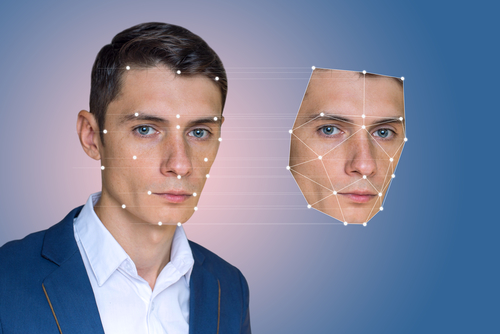Dutch MPs want citizens to own the copyright to their faces

A majority of Dutch MPs are backing a proposal to give citizens the copyright to their body, facial features, and voice to prevent people from creating AI-generated deepfakes and putting them online.
Denmark has already announced it will extend copyright law to ensure people maintain the right to their own person and GroenLinks-PvdA, VVD, NSC and D66 MPS now want to follow suit.
They have also called for action against big tech companies that do not act against the dissemination of deepfakes on their platforms.
Creating deepfakes is punishable by law if they are libellous or pornographic, and platforms can now be held liable for allowing deepfakes of this kind.
Deepfakes are also used to perpetrate bank fraud. According to figures from digital identity company Signicat, bank fraud involving deepfakes has increased by 2137% in the last three years. Cases include identity fraud by taking over a person’s account using facial recognition.
Advanced AI techniques are making it increasingly difficult to distinguish real from fake, AI expert Jarno Duursma told broadcaster NOS. But despite the availability of apps, it is still not easy to create “lifelike videos”, he said.
Duursma said legislation is a good idea because it will make legal action more easily accessible for victims.
Lawyer Diego Guerrero Obando, who specialises in intellectual property law, said legal protection against appearing in a deepfake video is currently divided into portrait rights, the right to privacy, and tort, or civil wrong. To add a person’s voice to the package makes the legislation more complete, he said.
Obando said any case against big tech companies would be a “challenge” and may turn into a battle of “David against Goliath”. “An individual would have to take on an often anonymous perpetrator or a big tech platform,” he said.
Privacy
Privacy watchdog Autoriteit Persoonsgegevens (AP) is calling on people who are the victims of sexually suggestive deepfakes to report them so it can impose fines and other measures.
Duursma and Obando both warned that the new legislation could compromise freedom of expression. However, parody and satire using deepfakes would still be allowed under the proposed rules.
Thank you for donating to DutchNews.nl.
We could not provide the Dutch News service, and keep it free of charge, without the generous support of our readers. Your donations allow us to report on issues you tell us matter, and provide you with a summary of the most important Dutch news each day.
Make a donation